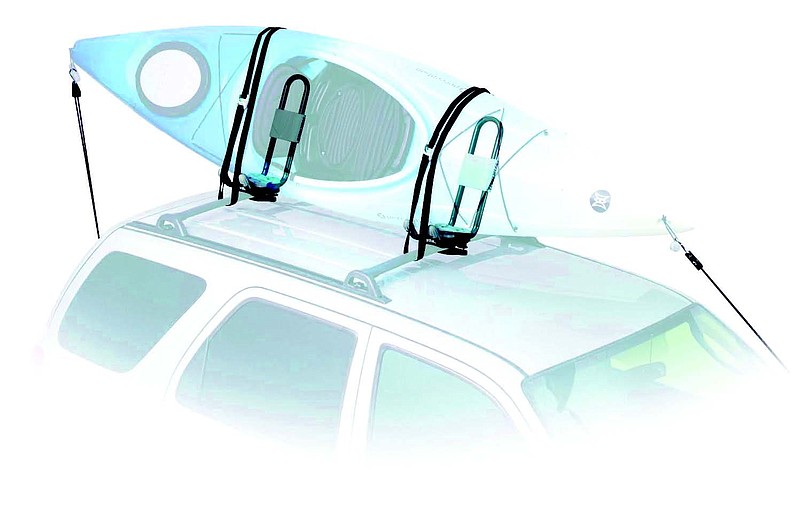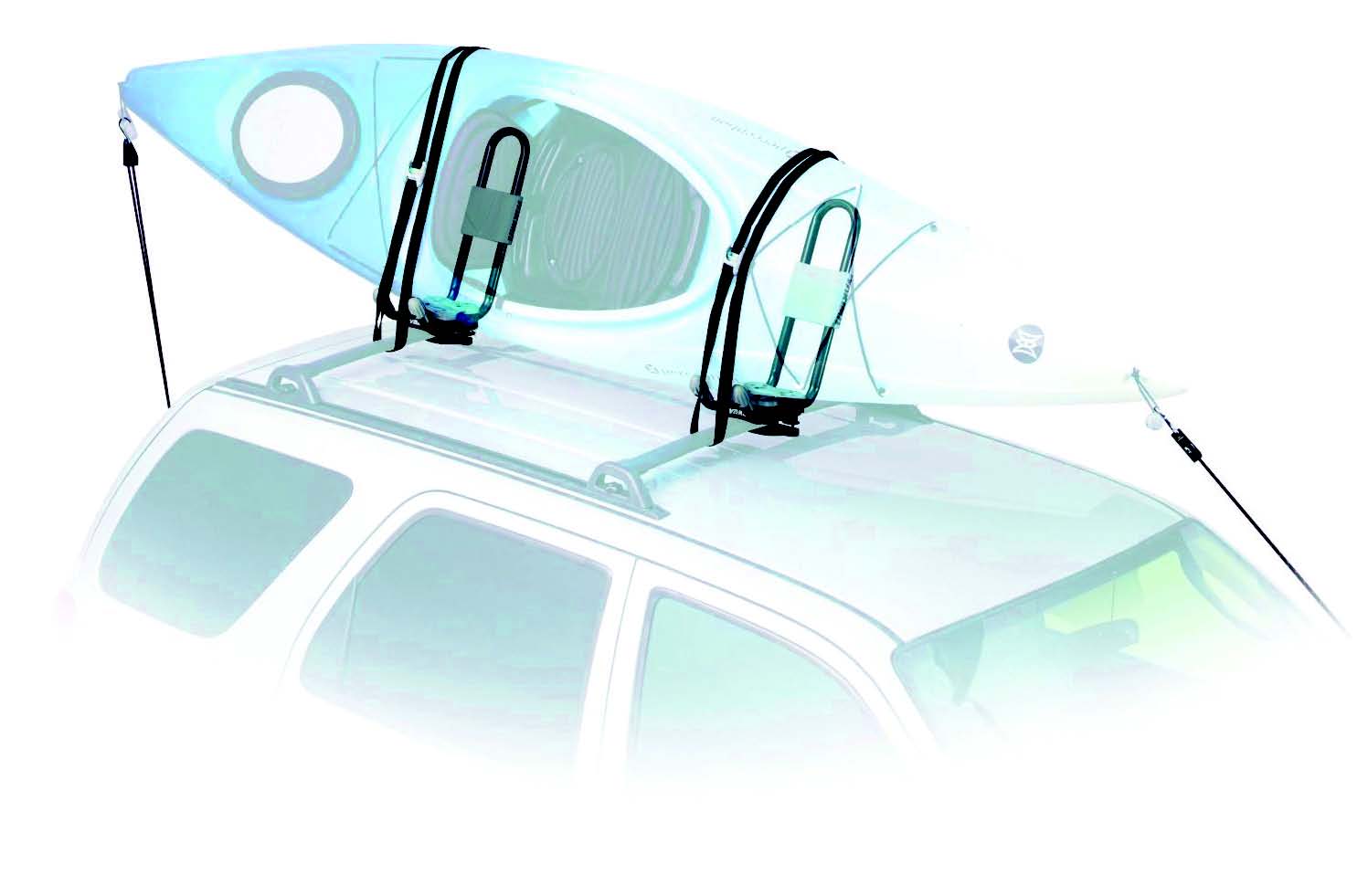Some paddlers are lucky. If you live walking distance from a launch site, you can carry your boat straight to the water. The rest of us, unfortunately, have to transport our boats to the water. And as you haul it, your boat -as well as your fellow drivers-will appreciate everything staying where it is supposed to be.
Rack Talk
The two giants of the rack industry are Thule and Yakima, and both provide a myriad of options specific to your vehicle. If your car already has a roof rack, your dealership may have rack accessories as well. Often, however, these options can be limited and expensive. Websites, as well as places like Boss Van in Rossville or Truck 'N Trailers USA on Access Road in Hixson, can help you find aftermarket options that fit your plans. Squirt boats need a different rack than an 18-foot tandem kayak or canoe. Boss Van even sells some hard to find replacement pieces of rack systems that can save you from having to buy an all-new setup. For canoes and heavier kayaks, Thule and Yakima even offer load assist bars to help get the boats on top of the roof before you tie them down.
Strap it Down
Unless you are traveling with your old scoutmaster and want to impress him that you still remember his knot-tying lessons, forget using ropes to tie down your boat. Ropes will do the job, and there's nothing wrong with using them. Most boaters, however, find that ratchet straps ($14 for a four-pack at Home Depot) with rubberized hooks on the end are faster and more dependable than tying a web of knots before each trip. In some applications-particularly when the boat is being secured to the rack rather than points on the vehicle-straps like Thule's Load Straps ($35 for two on thule.com) could be a better option. Such straps form a loop that tightens your boat to the rack like a noose.
Check, Please
Check your straps before you go and recheck a few miles down the road. The simplest way to know your load is secure is to grab your boat and shake it. If the boat stays still relative to the vehicle and the entire car moves with the boat, the load is ready to roll.
During your trip, straps stretch or slip and in hot weather, boats can even get soft, which could allow for shifting. It's better to pull off in a safe spot to check your lines than to have to pull over in traffic to fetch your splintered boat.
Road Blocks
If you are only going to be hauling a canoe occasionally or don't want to attach a permanent rack to your car, try foam blocks. Yakima and other manufacturers make kits ($35 at Academy Sports) for kayaks and canoes that provide cam straps and non-skid foam blocks that go between your boat and rooftop to cushion the load. As long as they are checked regularly during the trip, blocks are suitable to carry your boat for as many miles as you care to drive.

